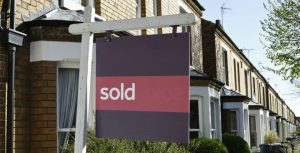Barratt, Britain’s biggest housebuilder, has announced it is cutting the price of some of its most expensive London homes by up to 10%. At the same time the average cost of buying a home in Britain rises by 7.7%, following the Brexit vote and changes to stamp duty.

Do these two contradictory headlines simply serve to show the disparity between the London housing market and the rest of the country? Or is something more complicated going on?
Annual UK house price growth would tend to suggest that the post-Brexit market is stabilising. Rising by 7.7% in the 12 months to September 2016, the average UK house price is currently £218,000, with prices rising fastest in eastern England from Hertfordshire to Norfolk, whilst the biggest rises were seen in London and the South East with a whopping average growth of 9.9%.
The figures highlight a schism between the London market and the rest of the UK. House prices in the capital rose by 10.9% – you could expect to shell out £487,000 for a home in London, which is more than double the national average.
Some estate agents believe that reduced stamp duty levels might be stimulating this rapid house price growth. The only place to buck the trend is prime central London, where estate agent Savills blames the referendum results for a fall of 9% in the value of mansions and luxury apartments.
The economic uncertainties caused by Brexit led many experts to predict house prices would fall – the fact that this hasn’t materialised is often blamed on a general shortage in supply of affordable housing.
Alongside these rising prices come a drop in sales, with recent data from the Office of National Statistics revealing current levels are lower than in 2014, 2015 and at the start of 2016. This November a review of the housing market commissioned by the Labour party noted that “new household formation and supply have been broadly in balance over the last 20 years”, but during that time house prices have advanced substantially ahead of inflation. The report says the income of those aged 28-30 relative to those aged over 40 has fallen by 10% since the financial crisis, and mortgage restrictions have restricted first time buyers. A survey carried out on behalf of Halifax reports that housing market confidence has also fallen to its lowers levels in three years in the wake of the Brexit vote.
Any questions about your home insurance? Give us a call on 0113 2500377.

